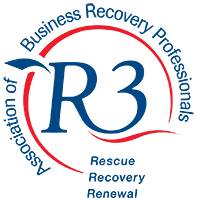How will my IVA impact my life?
Now that your IVA has begun, you will make one affordable monthly payment towards your debt each month for five to six years, with the remaining debt written off at the end of the agreement.
While it’s great that you have made the decision to deal with your debt, living with an IVA can be restricting. In this guide we’ll explore how an IVA may affect your life, including your monthly bills, your credit rating, and your ability to access new credit in the future.
How will an IVA impact my monthly bills?
Your eligibility for an IVA is always based on how much you can afford to pay towards your debt. An IVA consolidates all of your debt payments into one affordable amount, and given your case was approved, you have successfully demonstrated you can afford to make a monthly contribution.
When applying for the arrangement you would have taken part in an income and expenditure check. Your Insolvency Practitioner (IP) would have then used that information to determine how much you were capable of paying each month towards your debts.
When making that calculation, your IP would also have taken into account your monthly bills like rent, car payments, and other costs, as well as any additional debts that weren’t included in the arrangement.
This process should ensure your monthly bills remain manageable throughout the length of your arrangement, but if your bills increase or your circumstances change, making it more difficult for you to repay the debts that you owe, you should contact us immediately.
How will an IVA affect my credit rating?
Details of your proposal are put on your credit reference file, and also entered into the public Individual Insolvency Register for six years after approval, and as such, an Individual Voluntary Arrangement (IVA) will affect your credit rating.
The agreement will become part of your credit history and will remain on your credit file for six years.
However, it’s important to note that this is the case for most debt solutions and your credit score will likely already have been affected by being in debt in the first place.
Although an IVA does negatively affect your credit rating at first, it also offers the opportunity to start afresh, allowing you to stay on top of all future bills which will improve your credit rating.
How will an IVA impact my reputation?
Your IVA will be recorded in the Individual Insolvency Register which is available to the public.
Anyone who deliberately looks up your name in the register will see that you are insolvent but it won’t be broadcast in any other way.
So unless someone actually has cause to already believe you are in debt and checks the register, it is unlikely that anyone will ever know.
How will an IVA affect my ability to get loans in the future?
While repaying debt with an IVA, you must abide by strict rules when it comes to borrowing money such as loans or credit cards.
If you need to borrow less than £500, you can do so without asking permission from your Insolvency Practitioner (assuming the loan is approved by the lender). For amounts in excess of £500, you need to get written permission from your Insolvency Practitioner. The only exception is if the loan is needed to pay off utilities.
However, as the IVA affects your credit rating it’s always important to keep in mind that it’s unlikely you’ll be approved for short-term loans.
If this is a concern, remember an IVA consolidates your monthly bills and reduces the amount you owe so that you can actually keep up each month meaning you’re less likely to need a loan.
Can you lose your home with an IVA?
Homeowners looking for a debt solution may be a little concerned before entering an IVA for fear of losing their property.
It’s important to be aware that as a homeowner you won’t be forced to sell your home.
The value of your home will be taken into account as part of your agreement and you will be required to have your property valued in the final year of your IVA to determine how much equity is in it.
If your Insolvency Practitioner determines you have enough equity to significantly pay off your remaining debts, you will usually be ordered to remortgage to release that equity. If you cannot remortgage, you will simply be asked to make payments for an additional 12 months (making the IVA six years instead of five).
That said, you will have the option to sell the property if you choose. Any equity you do hold can be released into the arrangement, and you may even be able to keep some of the funds raised for yourself.
How will an IVA affect my car and other assets?
You will typically be allowed to keep your car provided that it is required for work or family transport and the value isn’t excessive.
With regards to other assets, you should note all household and domestic goods are excluded from the agreement by law. These are deemed as essential items and you will never be asked to sell these:
- Electrical items such as computers, phones, televisions
- Clothing
- Furniture and fittings
- Cooking equipment and white goods
- Medical aids (e.g. mobility scooters and wheelchairs)
- Children’s items
- Books
How will an IVA affect my job?
For most people, entering an IVA will not affect your job, however, it’s important to be aware that the agreement can affect some types of employment.
If you work in the police or prison service, fire service, are a banking clerk or are in a position of financial responsibility, such as an accountant or solicitor, being in an IVA could impact your job, so always make sure to check your contract for restrictions.
If you are self-employed you can continue to operate your business whilst in the IVA but should be aware that ongoing credit with suppliers could become an issue.
How will an IVA impact my budget?
An IVA is designed to make managing your monthly budget much easier.
Put simply, your unsecured debts will now be consolidated into a single monthly payment, making your monthly debt repayments easier to manage.
This should then allow you to manage your remaining funds for current bills which cannot be included in the debt solution, and have money left over for other living expenses.
Most common ways an IVA may impact your life
While there are many benefits to an IVA, it’s important to be aware of all the ways your way of living may be impacted while you’re in the arrangement, and to plan around these possible effects.
- Not all debts can be included. For example, student loans, child support and maintenance, magistrate court fines and social fund loans are excluded from an IVA, but an allowance can be given to enable you to continue repaying these.
- Spending restrictions are put in place for the length of your agreement.
- Homeowners may need to remortgage to release equity in the last year of the agreement. If you can’t remortgage, your arrangement could be extended by up to 12 months.
- Any windfalls and inheritance money over £500 received during the term will be included in the arrangement.
- If your circumstances change your IP can ask creditors to agree to an amended offer, however, if this isn’t approved your IVA could fail.
- If your IVA fails, it could lead to you being made bankrupt.
- IVAs are recorded on the Insolvency Register, which is a public register.
- An IVA can affect your credit rating and remains on your credit file for six years after it is accepted.


